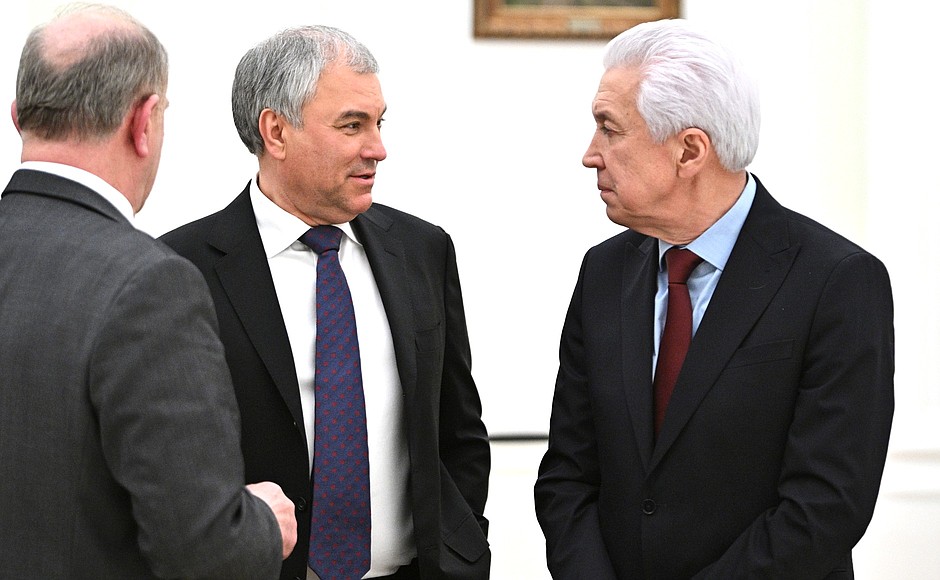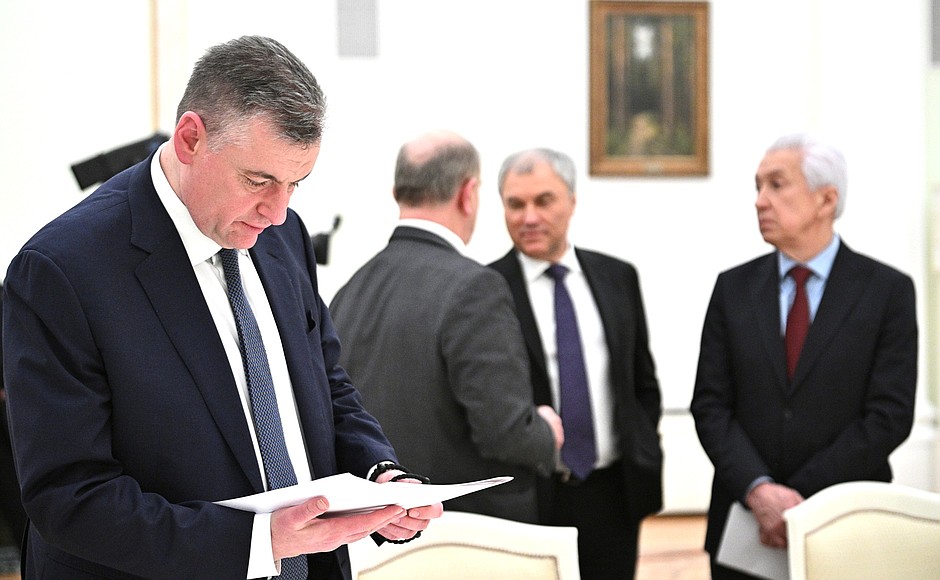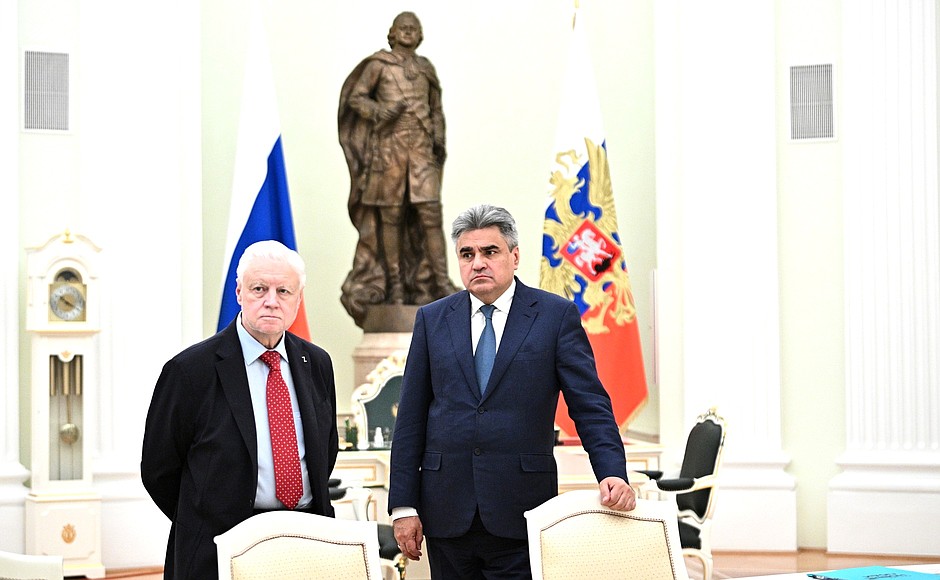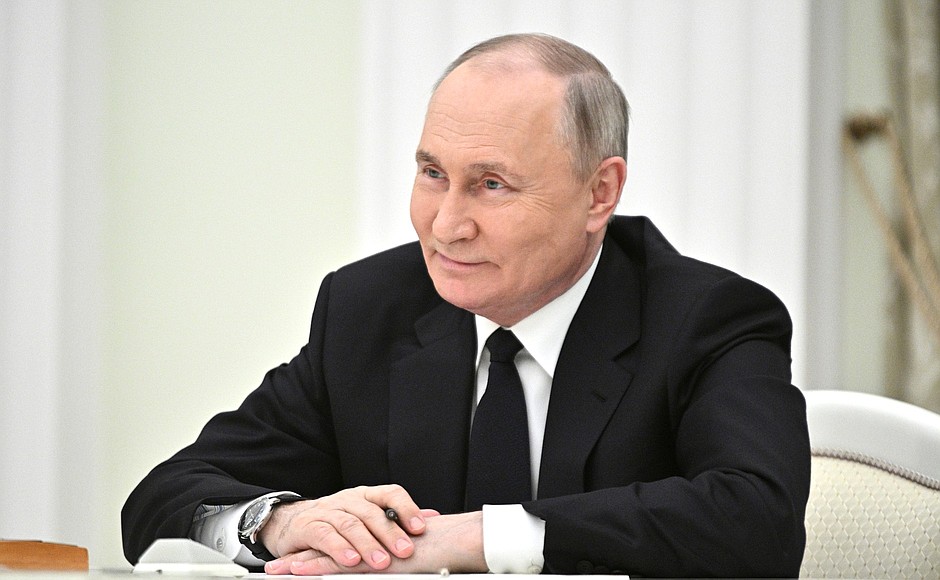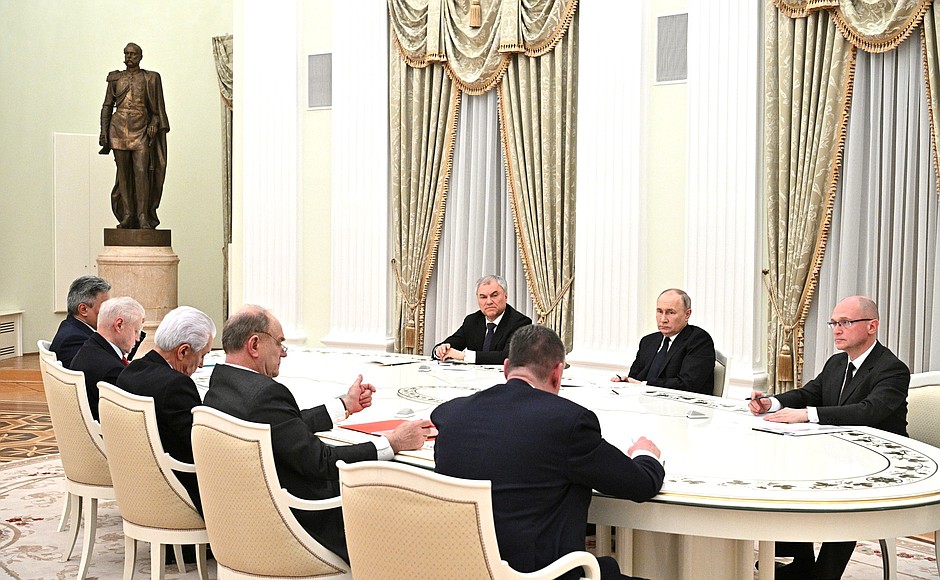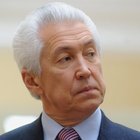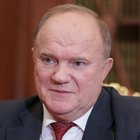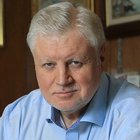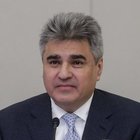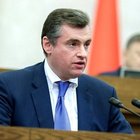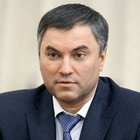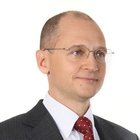Taking part in the meeting were head of the United Russia parliamentary group Vladimir Vasilyev, head of the Communist Party of the Russian Federation parliamentary group Gennady Zyuganov, head of the A Just Russia – For the Truth parliamentary group Sergei Mironov, head of the New People parliamentary group Alexei Nechayev, and head of the LDPR – Liberal Democratic Party of Russia parliamentary group Leonid Slutsky.
State Duma Speaker Vyacheslav Volodin and First Deputy Head of the Presidential Executive Office Sergei Kiriyenko also attended the meeting.
* * *
President of Russia Vladimir Putin: Colleagues, good evening.
You are probably aware that yesterday we had a meeting among the candidates for President of Russia. Yesterday, I met with our colleagues who represent your parliamentary groups, and some of them stand at their helm. I invited them to this meeting to discuss matters that they viewed as essential and key items on their programmes. Of course, every candidate has something in his programme that deserves our special attention. That said, all these programmes have a very clear focus on national development as their primary purpose. This is the first point I wanted to make.
See also
The second topic we raised during this meeting addressed the issues that caught their attention following their meetings with voters. This is something very important. In fact, receiving this kind of feedback from the people is crucial, and I was eager to hear what they had to say in this regard.
Today, I would like to discuss our short-term priorities. I set forth my national development programme in the Address to the Federation Assembly, to you and to our colleagues in the Federation Council.
There is nothing new here, and you have already heard it all. Still, let me say that the most important goal is to preserve the population. This includes helping families, stimulating demographic shifts, supporting young people, new families, families with children, particularly large families, as well as educating the younger generation. These objectives can only be achieved through economic growth, which serves as the cornerstone of our progress and provides the foundation for addressing all other matters, including technological sovereignty and social development. Parliamentary parties have always had diverging opinions on these matters, which is fine, of course. They have their own vision of what needs to be done to fulfil our social development goals.
I know that you could not fail to note that these priorities include efforts to enable the constituent entities of the Russian Federation, the regions, as well as municipalities to unleash their potential by offering them their own tax base, etc. I know that you support all these undertakings. Improving urban and rural infrastructure is also instrumental, of course.
Strengthening our defence capabilities and reinforcing national security has always been important for us, and has become even more so today.
The Address to the Federal Assembly covers all these points in one way or another. My colleagues and I discussed these topics yesterday here in this room. Of course, we must work together on all these matters in the near future and for the whole year, as well as in the longer term throughout the six-year cycle. There are many important issues on this agenda.
We have raised many issues in our discussions. By the way, I had meetings with almost all of you before delivering my Address to the Federal Assembly, but this is the first time we meet in this format to follow up on the Address. We discussed many things before the Address, and you have probably noticed that your proposals did make it into the Address.
I really hope that we keep working in the same constructive manner in the years to come as we did during the election campaign. Of course, each candidate, backed by their respective parties, had their own priorities and focus points. Still, the election campaign unfolded in a civilised manner, and I really hope that as we move into practical efforts to develop our country, Russia, we will work together in the same constructive spirit.
Of course, we will inevitably disagree on certain points, this is obvious. With this in mind, if someone believes that his or her proposal is better than other contributions, they should fight for their vision. I do hope, however, that these struggles will be just as civilised as during the recent period.
Finally, there is one more important point I wanted to make. In accordance with the Constitution, I mean its updated version, the Parliament is vested with the authority to form the Government, our supreme executive body. Not only will you approve the Prime Minister’s appointment, but also deputy prime ministers and ministers from the block. What an important and responsible task you have. You know, many people simply live their lives. This fact may have failed to catch the attention of ordinary people, but this is one of the key provisions in the updated Constitution. The parliament is now vested with extensive powers in terms of defining the Government line-up. This is a very responsible task.
You know, back in the day when I worked in Leningrad, and then in St Petersburg, I saw the way legislative bodies stumbled when facing issues of this kind, since every appointment ran up against vested corporate interests. I would like to call on you to focus on our cause instead of corporate and even party interests by selecting people for their personal and professional qualities, their ability to deliver on the objectives we will have to tackle. This is extremely important. I do hope that you and I will find answers to all these questions in our constructive business-like conversations.
This is what I wanted to say in terms of my opening remarks. I suggest that we proceed in the following manner: I would like to ask you to make brief statements. As far as I understand, each of you wanted to raise some specific issues you believe to be important. I am ready for that and we can do it. Let us get down to business. Go ahead, please.
<…>
Vladimir Putin: In conclusion to this part of our meeting, I would like to say the following: colleagues, each of you has spoken about the election now. The election is a very important event, especially in the current environment. It creates basic conditions for developing our statehood, strengthening our country; the basic conditions for progress in the future. It is impossible to move ahead without this. We must thank the citizens of our country, our voters for being so active, especially now.
I said recently, whom did our enemy decide to intimidate – the Russian people, the multiethnic people of Russia? This never happened and will never happen. I bet you also noticed this. Foreign press representatives approached people in difficult regions and asked: “Where are you going? Aren’t you scared?” And one man replied: “I am Russian and I am going where I need to go.”
You see, what our enemy does in the hope of achieving the desired result, produced the reverse effect, that’s all. They do not know who they are dealing with – with Russia. After all, this is still a community of people united by common goals despite ethnic origins or religious distinction. We have a common culture; we have what unites all of us.
After this important event, when the people, average citizens came out and did their duty, it is now our turn to do our duty for them.
There is a lot of stupidity and injustice in our people's lives starting at the lowest level and going all the way to the top. We cannot sit on our laurels now and say that this is all gone, that now we will take our seats as usual and will start functioning. No. I would like to draw your attention to this. We need renewal and not of specific people. We need to adjust our approaches to resolving the problems that we are all facing. This is very important.
Some things may not work out. But when our people see that all government levels are working honestly, intensively and are trying to do all they can to resolve the problems, people will forgive them many things and will look honourably at many things. Our job, together with you, is to work to the best of our ability, to do everything we can.
Of course, now I will join those who said in this office, at this table today that we certainly need to pool our efforts in the interests of the state. Yes, we must all work together. Obviously, and I started with this, there are issues of principle for representatives of every party, every parliamentary party. I am sure that the main point is to have a sincere attitude to what you are doing. People seek to resolve a problem in what they consider the best way, but I urge all of you to seek the compromises needed by the country.
Until now, we have managed to do this in the rather complicated conditions of external pressure. There is every reason to believe, as they say, that we will be able to continue working with the same efficiency. There is no doubt that in this situation we will meet all the main challenges we are facing and achieve our fundamental development goals.
I would like to finish my remarks at this point, and we will have a separate discussion later.
<…>
